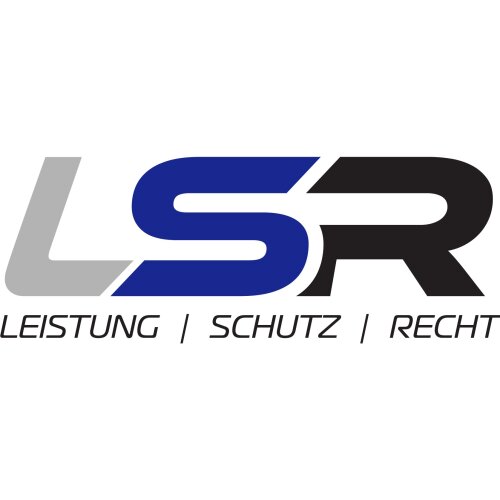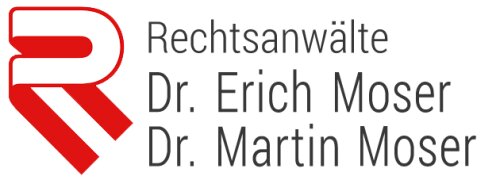Best Whistleblower & Qui Tam Lawyers in Austria
Share your needs with us, get contacted by law firms.
Free. Takes 2 min.
Or refine your search by selecting a city:
List of the best lawyers in Austria

About Whistleblower & Qui Tam Law in Austria
Whistleblower and Qui Tam law in Austria is designed to protect individuals who expose illegal activities or misconduct within organizations, particularly in government or corporate settings. The term "Qui Tam" refers to a legal action brought by a private individual on behalf of the government, and it originally stems from an old English law. Though Austria does not have a direct equivalent to the U.S. Qui Tam provisions in its legal system, whistleblowing is still recognized under various employment and anti-corruption laws. These legal frameworks aim to ensure that whistleblowers are protected from retaliation while encouraging the reporting of fraudulent or illegal activities.
Why You May Need a Lawyer
Engaging a lawyer can be crucial for those involved in whistleblowing for several reasons:
- Navigating Complex Legal Frameworks: The legal landscape surrounding whistleblower protection can be complex and daunting. A lawyer can help you understand your rights and the steps needed to report misconduct safely.
- Protection from Retaliation: Legal assistance is often essential to protect against potential retaliation from employers or other parties involved in the legal action.
- Confidentiality: Maintaining confidentiality during the whistleblowing process is critical. A lawyer can help ensure your identity remains protected during investigations.
- Proper Documentation: Lawyers can assist in gathering and presenting evidence needed to support your claims effectively.
- Favorably Resolving Claims: Legal counsel can provide strategic advice to resolve claims efficiently and possibly recover damages or compensation owed to you.
Local Laws Overview
Various laws in Austria are relevant to whistleblowers:
- Employment Protection Laws: These laws contain provisions against the unfair dismissal or discrimination of employees who report unlawful activities.
- Data Protection and Privacy Legislation: Ensures the confidentiality of whistleblowers' identities during investigations.
- Austria's Anti-Corruption Laws: Include frameworks under which whistleblowing reports are investigated, especially concerning public sector corruption.
- Whistleblower Protection Act: Enacted laws (updating EU directives) ensure that individuals disclosing information about breaches of EU law receive protection.
Frequently Asked Questions
What defines a whistleblower in Austria?
A whistleblower is someone who reports unlawful or unethical conduct within their organization to authorities or the public. The individual acts in good faith with reasonable belief in the misconduct they are exposing.
What protections are available to whistleblowers in Austria?
Under the Whistleblower Protection Act and related statutes, whistleblowers in Austria are shielded from retaliation, including dismissals, discrimination, and other forms of unfair treatment due to their reporting.
Can I report anonymously?
Yes, Austria's legal framework generally allows for anonymous reporting. However, anonymity can be challenging to maintain if the case goes to court.
What should I do if I suspect retaliatory action?
Seek legal advice immediately. A lawyer can help assess the situation, pursue legal remedies, and potentially negotiate with your employer to address any unfair treatment.
Is whistleblowing considered a breach of confidentiality agreements?
In most cases, whistleblowing is protected by law, even when confidentiality agreements are in place, provided the report is made in good faith and to the appropriate authorities.
Am I entitled to compensation as a whistleblower?
While Austria's laws do not commonly provide financial rewards for whistleblowers, individuals might seek compensation through civil law if they experience damages due to retaliation.
Can non-employees report as whistleblowers?
Yes, suppliers, contractors, and other partners can report illegal activities if they possess credible information, although protections might vary compared to traditional employees.
How is my report investigated?
An independent authority or an internal compliance department typically conducts an investigation. The specifics depend on the nature of the report and the sector involved.
What kind of misconduct can be reported?
Common types include fraud, corruption, health and safety violations, environmental harm, or any breach of laws and regulations. The context often dictates the appropriate channel for reporting.
Do I need a lawyer to file a whistleblower report?
While not mandatory, having a lawyer guide you through the process can be beneficial. They ensure you follow the correct procedures, protect your rights, and handle any complexities that may arise.
Additional Resources
Several organizations and authorities in Austria offer support and further information:
- Austrian Anti-Corruption Authority: Offers resources and contact points for reporting corruption.
- Ombudsman for Equal Treatment: An entity supporting individuals facing discrimination or unfair treatment, including retaliatory actions.
- Chamber of Labor: Provides advice to employees on workplace rights, including whistleblower protections.
Next Steps
If you need legal assistance in whistleblower or Qui Tam matters, consider the following steps:
- Consult Legal Experts: Reach out to lawyers experienced in employment law and whistleblower protection to discuss your situation confidentially.
- Document Your Concerns: Keep detailed records of any misconduct, including dates, communications, and potential witnesses, to support your case.
- Utilize Support Networks: Contact relevant governmental agencies or professional groups for guidance on best practices in whistleblowing.
Taking informed steps early in the process can greatly impact the protection of your rights and the successful resolution of your case.
Lawzana helps you find the best lawyers and law firms in Austria through a curated and pre-screened list of qualified legal professionals. Our platform offers rankings and detailed profiles of attorneys and law firms, allowing you to compare based on practice areas, including Whistleblower & Qui Tam, experience, and client feedback.
Each profile includes a description of the firm's areas of practice, client reviews, team members and partners, year of establishment, spoken languages, office locations, contact information, social media presence, and any published articles or resources. Most firms on our platform speak English and are experienced in both local and international legal matters.
Get a quote from top-rated law firms in Austria — quickly, securely, and without unnecessary hassle.
Disclaimer:
The information provided on this page is for general informational purposes only and does not constitute legal advice. While we strive to ensure the accuracy and relevance of the content, legal information may change over time, and interpretations of the law can vary. You should always consult with a qualified legal professional for advice specific to your situation.
We disclaim all liability for actions taken or not taken based on the content of this page. If you believe any information is incorrect or outdated, please contact us, and we will review and update it where appropriate.
Browse whistleblower & qui tam law firms by city in Austria
Refine your search by selecting a city.















